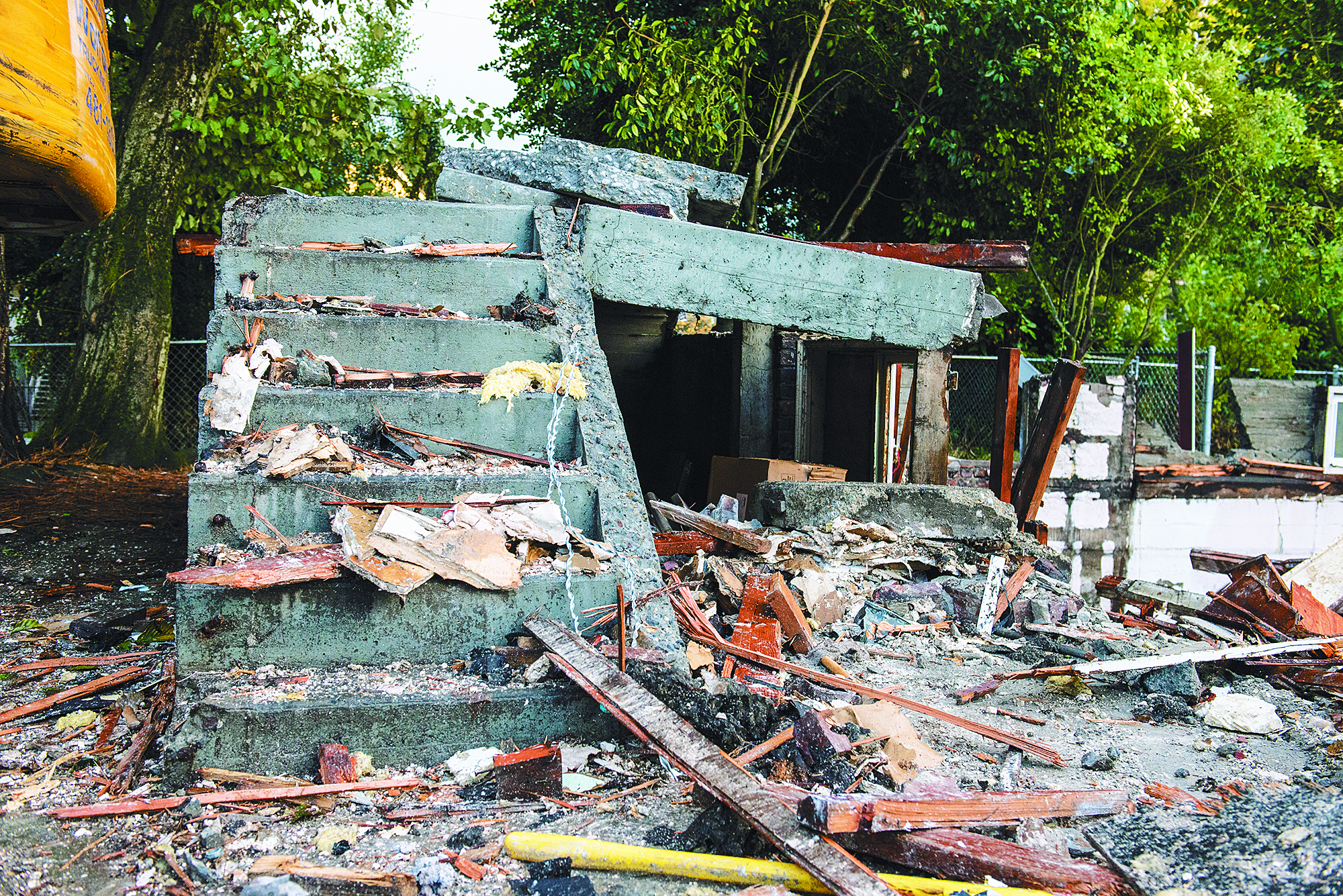I just want to say this program saved my life.” This is one of the many messages posted on the “Friends of Genesis House” Facebook page since the 48-bed inpatient rehab center closed six months ago. “I have over two years clean,” it continues. “Without Genesis House and all the staff and people there I don’t know where I would be. It hurts to know that it closed and no one else will receive all the blessings I got from there.”
More than blessings, Genesis House provided one of the greatest weapons in the battle against serious drug and alcohol addiction: motivation.
The particular brand of motivation offered at the 41-year-old Madrona treatment center was among the rarest in the world of chemical-dependency recovery: The facility was one of only a handful in the state that allowed recovering addicts enrolled in inpatient treatment—whether under court order or their own volition—to stay with their children. Even rarer, Genesis House offered intensive six-month treatment services to men and women with children—predominantly low-income clients—offering care for kids up to age 12. In other words, Genesis House was a place where addicts could kick their habit without breaking up their family. It also allowed parents whose kids had been removed from their care by the state a chance to reunite with them under the agency’s supervision.
“It was a huge motivator,” says Laurel Reiter, who worked a total of 12 years at Genesis House, most recently as a clinical supervisor. “Of the people we got into treatment, the majority were parents. A lot of them came in because their kids had been taken and they knew they could be reunited with them [at Genesis House].”
The ruins of what was the Genesis House. Photo by Morgen Schuler
Daniel Masler, a doctor of clinical psychology contracted to conduct trauma and parenting groups at Genesis House, echoes the sentiment. “When we can safely reunite families, with consistent treatment, people start feeling hopeful,” Masler tells Seattle Weekly. “There’s something to start living for. I can’t tell you the number of times a resident would say, ‘Yes, this is tough, but I’m going to push through for my kids. I’ll do this just to start being with my kids.’ ”
In the past year, that type of service has become harder to access. The demise of Genesis House followed the closure of Perinatal Treatment Services last October, leaving just one facility in the Puget Sound region that offers similar services. Seadrunar, a drug and narcotic treatment center near White Center, has the capacity to serve 150 adults, but only 25 children, up to 12 years old.
Without these places, says former Genesis House family-services director Ian Bell, the destructive cycle of addiction strikes families hard. “I just heard from an old colleague that someone we know from the recovery community relapsed,” Bell tells Seattle Weekly. “She has lost her 1-year-old to the state, and it looks like she will have to wait months to find a bed in an inpatient facility…. The state will either wait to give her the child back until after treatment or at the end of her program, which means the soonest the child will be in the care of her mother will be eight to 10 months.”
So what’s to blame for the closure of Genesis House and the financial struggles of programs like it?
One popular alleged culprit is the Affordable Care Act (“Obamacare”) and the expansion of Medicaid that the law has made possible in Washington. But while the ACA-related uptick in Medicaid—which will see 400,000 additional enrollees by 2015—has put stress on many of the state’s outpatient facilities, Genesis House was not affected directly by this change. The facility never received Medicaid money, due to a longstanding, and much-derided, federal law that prohibits any Medicaid money from flowing to facilities with more than 16 beds. Therefore Genesis House was largely dependent on contracts from the Washington Department of Social and Health Services and state general-fund dollars, leaving it vulnerable to economic shifts, like the one that hit six years ago.
The grip of the Great Recession is still being felt in Washington. Jane Beyer, who leads DSHS’s Behavioral Health and Service Integration Administration, says that since 2009, money for chemical-dependency treatment coming out of Olympia has flatlined. The last time the state studied the rates it pays chemical-dependency treatment providers was early 2000, and as Beyer puts it, “We haven’t really made significant changes since then.” Throw in inflation over the past five years—the cost of running a treatment facility has only gone up—and you’ve got a recipe for financial peril.
The decision to close the doors at Genesis House, in other words, was made by cold, hard economics.
Genesis House was largely dependent on DSHS contracts and state general-fund dollars, leaving it vulnerable to economic shifts. Photo by Morgen Schuler
“When recessions roll around and cuts have to be made to the budget, it’s often the 100-percent-state-funded kind of things that end up coming up for consideration, largely because by cutting those dollars you don’t lose federal matching dollars,” says Byers. “The chemical-dependency system took some cuts. I remember sitting in those rooms and having horrible discussions.”
While there’s some hope that future state budgets will include more funding for drug treatment—and a statewide switch in 2016 that will bring chemical-dependency and mental-health treatment together under a managed-care plan provides further cause for optimism—no one seems to be holding their breath. Meanwhile, what the future of Washington’s chemical-dependency treatment landscape will look like remains anyone’s guess.
mdriscoll@seattleweekly.com








